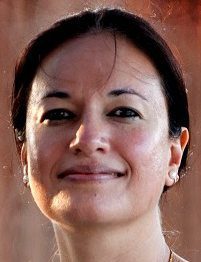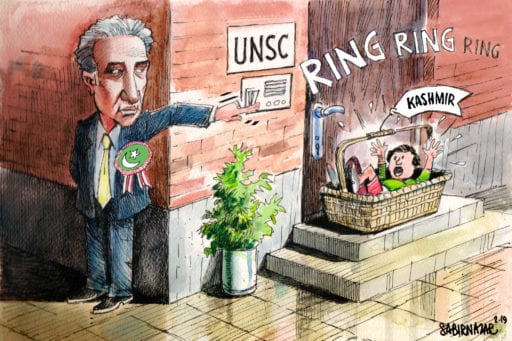Diplomacy Is About Avoiding Saying The Wrong Thing At Any Time
BY NYLA ALI KHAN
 It is detrimental to democracy when the Consul General of India to New York, Sandeep Chakravorty, asserts that in order to facilitate the return of the displaced Pandit community, India will build settlements in Kashmir.
It is detrimental to democracy when the Consul General of India to New York, Sandeep Chakravorty, asserts that in order to facilitate the return of the displaced Pandit community, India will build settlements in Kashmir.
This sort of deleterious rhetoric, when employed by diplomats and policy makers, becomes the authoritative discourse of officialdom.
In the current prevailing “culture of fear,” such rhetoric gives further impetus to forces of bigotry and intolerance. The fear of the “other” must be addressed boldly and courageously by rational people not just in the international community, but in mainstream Indian politics as well.
The private gathering at which Consul General Chakravorty voiced his polarizing “diplomacy” in a forceful manner was held in New York City.
His rhetoric was bolstered by a couple of Bollywood bigwigs. Right-wing Bollywood directors and actors, who regale their rapt listeners with disingenuous claims of reviving “Kashmiriyat” through their craft, fail to historicize the concept.
It would behoove sycophants of the BJP in Bollywood to seek a cure for their ignorance.
In the turbulent decades of militancy and militarization, a large constituency of Kashmiri Muslims, at great risk to their lives, kept alive a cultural and religious identity that these phenomena were not able to do away with.
The display of national chauvinism and brazen breach of trust by the Modi government has destroyed the vestiges of Kashmiriyat that we had sought to protect.
Kashmiryat is the unacceptability of any political solution that does not take the aspirations and demands of the Kashmiri people into consideration.
Kashmiryat is the sanctity of the Constitution of Jammu and Kashmir, which was ratified in 1951 and was an enormous leap toward the process of democratization.
I take great pride in the conviction of my ancestors who climbed every mountain and forded every stream to relay their political message of regional pride, Kashmiri nationalism, and assertion of people’s power.
The cultural identity of the Kashmiri people has been damaged by the erosion of our democratic and autonomous institutions.
We have faced the terrors of insurgency and counter insurgency. And, now we are facing irreparable damage wreaked by authoritarianism.
The nationalist chauvinism, religiosity, and triumphalism after the revocation of the autonomous status of Jammu and Kashmir in the “New” India, which I don’t recognize, are demoralizing and reprehensible.
We acceded to India in 1947 when communal frenzy was raging throughout the subcontinent. Our ancestors thought that India represented the ideals of secularism and democracy. They believed that, despite temporary aberrations, Hindus, Muslims, and communities would unite.
And the faith of our ancestors in the ideals of secularism and democracy led them to believe that there would be rule of law and a democracy where religious persecution would cease.
I was raised to not discriminate between Hindus and Muslims. I was taught that the life of a Hindu was as sacred as that of a Muslim, and any harm to a Hindu should be prevented at the cost of our lives, because our religion taught us that it was our duty to defend and help our neighbor, who may be weak.
Today, I see the government of a democratic country deterring the growth of democracy and depoliticizing the people of one of its federating units.
The younger generation of Kashmiris has been disfigured by the inability of national security apparatuses and nation-states – either secular or theocratic – to recognize their political, socioeconomic and cultural aspirations. This generation of Kashmiris is war-weary, embittered, and despondent.
I would hope that we, Kashmiri Muslims as well as Kashmiri Pandits, crave a world in which social justice, political enfranchisement, cultural pride, and self-realization are the order of the day.
I would hope that instead of exacerbating divides, rational Kashmiri Muslims and Kashmiri Pandits could work together to connect, promote social justice, and care for those affected by humanitarian disasters.
Some of us have always believed that the revival of pluralism could be the antidote to the orthodoxy of ethnocentric politics. It could also have been the antidote to the implosion of religion and government.
– Nyla Ali Khan is the author of Fiction of Nationality in an Era of Transnationalism, Islam, Women, and Violence in Kashmir, The Life of a Kashmiri Woman, and the editor of The Parchment of Kashmir. She also has served as a guest editor working on articles from the Jammu and Kashmir region for Oxford University Press [New York], helping to identify, commission, and review articles. Dr. Khan is a member of the Oklahoma Commission on the Status of Women. She can be reached at nylakhan@aol.com.








